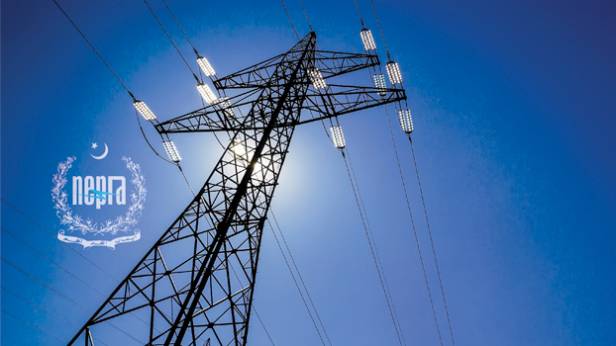ISLAMABAD: The National Electric Power Regulatory Authority (NEPRA) has granted the power generation licence to Pakhtunkhwa Energy Development Organization (PEDO) for its 11.80MW Karora Hydel Power Plant located on Khan Khwar river at Karora village near Besham, District Shangla, Khyber Pakhtunkhwa (KP).
The proposed project is being set up on Khan Khwar river (one of the right tributaries of the Indus River) at Karora village near Besham, district Shangla, in the province of KPK and will have an installed capacity of 11.80MW consisting of two horizontal-axis Francis turbines (5.90MW each).
The said generation facility will have a very high head of up to 152 meters with a maximum design discharge of 9.75 m3/s. The project will result in a mean annual energy of 71.39 GWh at plant factor of 69.06 per cent. The total cost of the project will be around Rs3263.278 million with a debt to equity ratio of 75 per cent and 25 per cent of the project cost.
Earlier, PEDO carried out a detailed feasibility study of the project.
The Authority duly considered the GIS for the dispersal of electric power from the proposed generation facility/Hydel Power Plant. According to the said study, the dispersal of electric power will be made at 132 kV voltage level. The dispersal/interconnection arrangement will be consisting of a 132 kV Double Circuit (D/C) transmission line (measuring about ten (10) kilometer on twin bundled ACSR Rail conductor) for making an in-out of one circuit of 132 kV D/C transmission line from Ranolia Hydel Power Plant to Khan Khwar Hydel Power Plant.
It is pertinent to mention here that the National Transmission and Despatch Company Limited (NTDC) has already approved the said dispersal/interconnection arrangement of the generation facility/Hydel Power Plant.
NEPRA’s decision also stated that the Authority is satisfied that the proposed generation facility/Hydel Power Plant of PEDO will be utilising water which is a renewable energy (RE) source. However, the Authority has observed that the power plant may cause some environmental concerns including soil pollution, water pollution, and noise pollution.
The Authority has observed that PEDO carried out the required IEE Study and submitted the same for the consideration and approval of the Environmental Protection Agency, Govt. of KPK (EPAGoKPK). In this regard, the Authority is satisfied that EPAGoKPK has issued a NOC for the construction of the project, said NEPRA.
The province of Khyber Pakhtunkhwa (KPK) is blessed with huge potential for hydropower projects. In order to harness the same, the provincial government has set up the Pakhtunkhwa Energy Development Organization (PEDO). And, PEDO has identified around 6000 MW hydropower potential at various sites all over the province. The identified/selected sites are at different stages of implementation. In this regard, PEDO has planned setting up 11.80 MW hydel based generation facility in district Shangla.
PEDO applied for the grant on December 29, 2017. The registrar of NEPRA examined the application and the Authority considered the matter and found the form and content of the application in substantial compliance with Regulation-3 of the Licensing Regulations. Accordingly, the Authority admitted the application on January 24, 2018, for consideration of the grant of generation licence.
Similarly, the Authority approved an advertisement to invite comments of the general public, interested and affected persons in the matter as stipulated in Regulation-8 of the Licensing Regulations. Accordingly, the advertisement was published in one (01) Urdu and one (01) English newspapers on February 02, 2018 respectively.
In addition to the above, the Authority approved a list of stakeholders for seeking their comments for its assistance in the matter in terms of Regulation-9(2) of the Licensing Regulations. Accordingly, letters were sent to different stakeholders as per approved list on February 02, 2018, soliciting their comments for the assistance of the Authority.
In response to the above, the Authority received comments from three (03) stakeholders. These included Indus River System Authority (IRSA), Alternative Energy Development Board (AEDB) and Ministry of Planning, Development & Reform (MoPD&R).
IRSA in its comments desired that PEDO may be directed to provide a copy of PC-I along with feasibility study and approach it for No Objection Certificate (NOC) for the project.
AEDB supported the grant of generation licence to PEDO for its proposed 11.80 MW hydel project; and the ministry of planning, development and reform (MPD&R) stated that the proposed hydel project is in line with the vision 2025, according to which it proposed to enhance the share of indigenous resources.
The ministry supported the grant of the generation licence to PEDO but stressed on timely completion of the project to avoid the escalation of cost.
In view of the above, the Authority decided to proceed further in the matter as stipulated in the NEPRA Licensing (Generation) Rules, 2000 (the “Generation Rules”) and the Licensing Regulations.
The existing energy mix of the country is heavily skewed towards thermal power plants, mainly operating on imported fossil fuel. In this regard, the Authority is of the opinion that use of imported fossil fuel for power generation is not only an environmental concern but also creates pressure on the precious foreign exchange reserves of the country. Therefore, the Authority considers that in order to achieve sustainable development, it is imperative that all indigenous resources especially RE including hydel, wind, solar and other RE resources are given priority for power generation and their development is encouraged.




